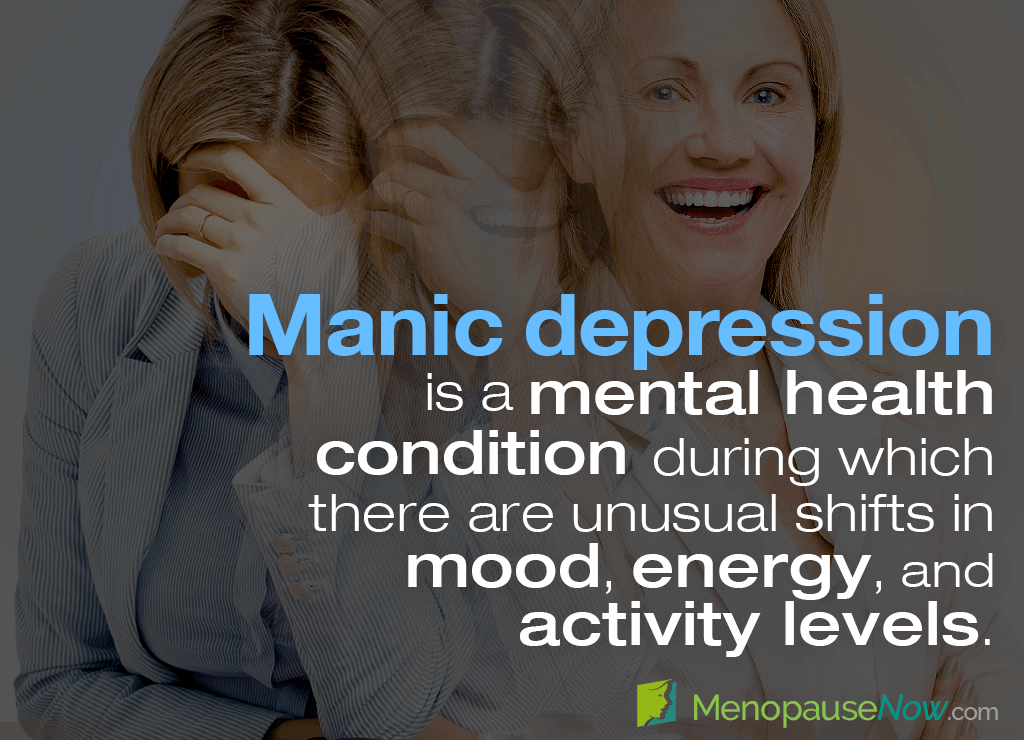Some women who suffer from sudden changes in mood on a consistent basis may not realize the condition at fault for these unexpected, emotional alternations is known as manic depression.
Find out all you need to know about manic depression below, including what it is, its causes, and how it can be treated for an improved quality of life.
What is Manic Depression?
Manic depression - also known as bipolar disorder, manic depressive disorder, or bipolar manic depression - is a mental health condition during which there are unusual shifts in mood, energy, and activity levels throughout the day.
Women who suffer from bipolar manic disorder have symptoms of changes in sleeping patterns; increased or decreased activity levels; intense emotions; and other abnormal behaviors.
Though the frequency and intensity of mood episodes vary from woman to woman, periods of elevated mood and activity, called manic phases, are generally followed by depressive phases characterized by sadness and apathy.
What Causes Manic Depression?
The exact cause is unknown, although contributing factors are believed to be a combination of social, physical, and environmental influences.
For women passing through the menopausal transition, mood swings and depression are most likely due to drastic reproductive hormone fluctuations creating a chemical imbalance in the brain. Nevertheless, further research is necessary to solidify the connection. Menopausal mood changes do not always signify that a woman has a bipolar disorder.
How Can I Treat Manic Depressive Disorder?
The primary treatments for manic disorder are medications - mood stabilizers, antipsychotics, antidepressants, antidepressant-antipsychotics, or anti-anxiety medications - and psychotherapy, which is a form of psychological counseling.
However, for women whose mood episodes are due to the menopausal transition, a stable mood will come about with hormonal balance.
Manic disorders and depression treatments can begin with healthy lifestyle choices of an optimized diet rich in phytoestrogens, which are plant-based estrogens that help fill the hormonal gap, and beneficial habits, which include forming positive and supportive relationships; keeping a mood chart; and quitting any dependencies on drinking or drugs.
Combine your efforts with alternative medicine for improved results. While phytoestrogenic herbal supplements and hormone-regulating supplements both encourage healthy hormone levels, the latter are safe for long-term use as they do not introduce exogenous hormones into the body.
Key Takeaways
Manic depression, more commonly referred to as bipolar disorder, is a condition during which there are abnormal shifts in mood, energy, and activity levels for no apparent reason. During menopause, rapid mood swings and depression might resemble manic depression, while in reality, they can be attributed to the drastic hormonal fluctuations taking place in women's bodies that offset chemicals in the brain. Before reaching for pharmaceuticals, try managing the condition by treating its root cause of hormonal imbalance with healthy lifestyle changes and alternative medicine.
Sources
- Mayo Clinic. (2018). Bipolar disorder: Symptoms & causes | Bipolar disorder: Diagnosis & treatment. Retrieved January 29, 2019, from https://www.mayoclinic.org/diseases-conditions/bipolar-disorder/symptoms-causes/syc-20355955 | https://www.mayoclinic.org/diseases-conditions/bipolar-disorder/diagnosis-treatment/drc-20355961
- National Institute of Mental Health. (2016). Bipolar Disorder. Retrieved January 29, 2019, from https://www.nimh.nih.gov/health/topics/bipolar-disorder/index.shtml
- NHS. (2016). Causes: Bipolar disorder. Retrieved January 29, 2019, from https://www.nhs.uk/conditions/bipolar-disorder/causes/
- Northwestern University. (2014). Menopause May Dramatically Up Depression, Manic Risk in BD. Retrieved January 29, 2019, from http://menopause.northwestern.edu/content/menopause-may-dramatically-depression-mania-risk-bd




